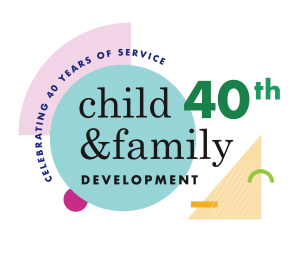By Lindsey Anuzis, MA, LCMHCA, NCC, RBT ~ Child and Family Development
Parents, I am sure you are familiar with taking their child to the doctor, whether it’s for a sick visit or their annual wellness visit. What about the dentist? Yep…your kids see them too for that bi-annual cleaning. Did you know that seeing a licensed mental health professional is just as important, and can be just as routine?
Mental health professionals are there for you and your kids when you are struggling, but they can also be there for you when things are going incredibly well! Think of it as a way to help maintain that state of wellness. Emotional expression is healthy. Expanding upon coping skills is also something that helps your child maintain wellness.
Going to therapy/ counseling has unfortunately been stigmatized for decades by society and the media. It is only recently that the media has started to fight the stigma. So what is a stigma? The dictionary defines it as “a mark of disgrace associated with a particular circumstance, quality, or person.”
Likely, most individuals who have a mental health diagnosis have at some point been blamed for their condition and situation. Symptoms have been referred to as a “phase” (excessive moodiness, or fatigue, or difficulty sleeping) or something they can “control” (think extreme behavioral outbursts), rather than a medical diagnosis. Stigma causes people to feel ashamed of something out of their control, and even worse, a stigma can deter people from seeking help.
False beliefs about mental health can cause significant problems. Whether you know someone with mental health condition or not, there are a variety of ways in which you can take action and help to fight the stigma!
1) Talk openly about your own mental health
Talk about your thoughts, and how you are feeling; not only does this normalize it for other people (and kids!), but it also helps you process and reflect on your own experiences- a Win-Win!
2) Educate yourself and others!
Know the facts about the condition- this includes things you may not even realize; such as prevalence and family history especially as it relates to ADHD, substance use, Anxiety, Depression etc…
3) Be conscious of the language you use—this is a big one!!
Notice how you tend to talk about situations and conditions, are you using person-first language (ex. Child with Autism), or diagnosis-first language (ex. Autistic child). This can be the difference in how a child views themselves (implications for future self-esteem, self-efficacy, and learned helplessness!). Learn to use person-first language so no one feels defined by their condition.
4) Notice your own attitudes, and behavior towards mental health
Are you inclusive towards individuals who have mental health conditions, or do you avoid them?
5) Encourage equality between mental and physical health
Talk about seeking mental health treatment just as you would any other medical professional; when people understand that a mental illness is a medical condition, rather than a phase they are less likely to make comments.
6) Show compassion for those with mental health conditions
Ask those around how they are really doing, or better yet, how you can support them. Get vulnerable, and allow them to be vulnerable too.
7) Choose empowerment over shame
Praise and encourage those around you for seeking treatment rather than shaming them!
8) Be honest about treatment
– Due to stigma from media, family, or friends, you may be reluctant to seek treatment for yourself or your children. Treatment can provide you with the relief by helping to support you in identification and management of symptoms.
– This is also important for getting help for your kids at school- if your child has a mental health condition that impacts his/her ability to learn (dyslexia, ADHD, etc); Talk with your child’s teachers and find out what options and accommodations are available at school.
9) Don’t harbor self-stigma
It is easy to get discouraged at times if you are really struggling with symptoms, but know with treatment, there is hope! Positive self-talk and reframing can go a long way!
Do your part and help us fight the stigma around mental health! Parents, if you are starting to notice changes in you or your child’s mood, and/or behaviors, take the first step and reach out for help! We are always here to support you!
*Adapted from the NAMI (National Alliance on Mental Illness) List *
Lindsey Anuzis, MA, LCMHCA, NCC, RBT is a Licensed Clinical Mental Health Counselor Associate as well as a Registered Behavior Technician at the Midtown and Pineville locations of Child & Family Development. Lindsey obtained her Bachelor of Science in Psychology from High Point University in High Point, NC and her Master of Arts in Clinical Mental Health Counseling from Wake Forest University in Winston Salem, NC. She provides ongoing therapy services to preschoolers through young adults to address concerns related to mood, behavior, and social skills. Her areas of clinical interest include stress and coping skills, life transitions, grief and loss, self-esteem, identity concerns, bullying and relationship issues, wellness counseling with a mind body emphasis and trauma. Contact us to schedule an intake appointment with Lindsey today.
Child & Family Development

Locations:
Mitdtown:
4012 Park Road, Suite 200
Charlotte, NC 28209
704.332.4834
Pineville:
11940 Carolina Place Parkway, Suite 200
Charlotte, NC 28134
704.541.9080
Website | Facebook | Instagram | Twitter




